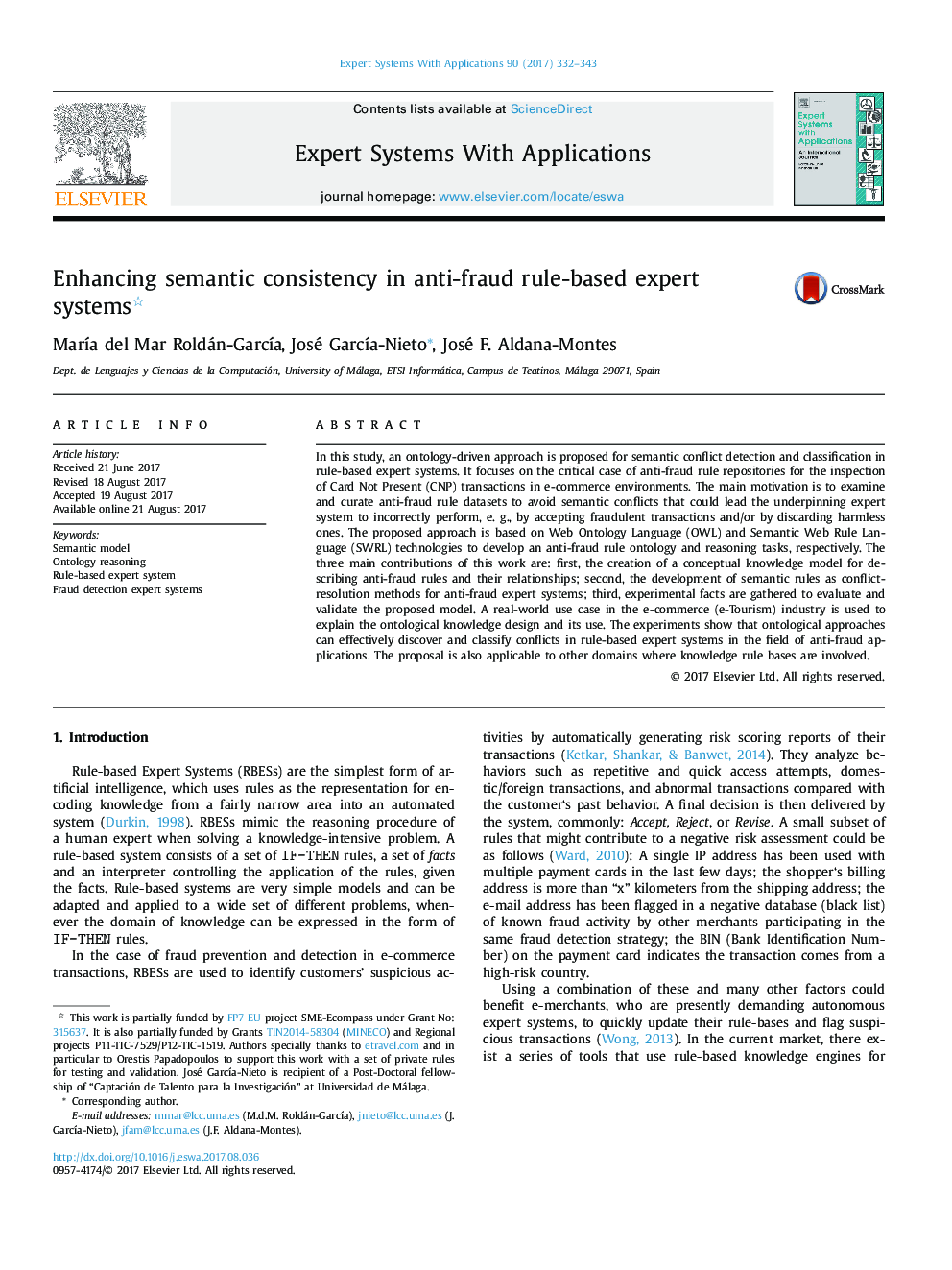| Article ID | Journal | Published Year | Pages | File Type |
|---|---|---|---|---|
| 4942978 | Expert Systems with Applications | 2017 | 12 Pages |
Abstract
In this study, an ontology-driven approach is proposed for semantic conflict detection and classification in rule-based expert systems. It focuses on the critical case of anti-fraud rule repositories for the inspection of Card Not Present (CNP) transactions in e-commerce environments. The main motivation is to examine and curate anti-fraud rule datasets to avoid semantic conflicts that could lead the underpinning expert system to incorrectly perform, e. g., by accepting fraudulent transactions and/or by discarding harmless ones. The proposed approach is based on Web Ontology Language (OWL) and Semantic Web Rule Language (SWRL) technologies to develop an anti-fraud rule ontology and reasoning tasks, respectively. The three main contributions of this work are: first, the creation of a conceptual knowledge model for describing anti-fraud rules and their relationships; second, the development of semantic rules as conflict-resolution methods for anti-fraud expert systems; third, experimental facts are gathered to evaluate and validate the proposed model. A real-world use case in the e-commerce (e-Tourism) industry is used to explain the ontological knowledge design and its use. The experiments show that ontological approaches can effectively discover and classify conflicts in rule-based expert systems in the field of anti-fraud applications. The proposal is also applicable to other domains where knowledge rule bases are involved.
Related Topics
Physical Sciences and Engineering
Computer Science
Artificial Intelligence
Authors
MarÃa del Mar Roldán-GarcÃa, José GarcÃa-Nieto, José F. Aldana-Montes,
